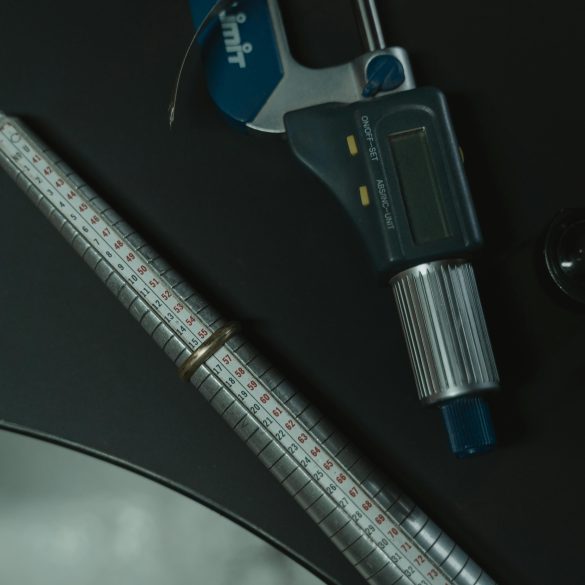Bahamas Customer Trust Guide: Transparent Small Business Practices Simplified
Let me start with a confession: Back when I first started consulting for small businesses in Nassau in 2015, I underestimated just how central transparency was to customer trust. You know that feeling when you realize — almost too late — that what really wins repeat business in the Bahamas isn’t just flash or discounts, but honest communication and visible integrity? That realization stuck with me, and honestly, I keep revisiting it every time a client asks, “How do I really get people to trust my brand?” Nowadays, the central point is clear: If you run a small business in the Bahamas (whether it’s a straw market stall or a boutique resort), transparency isn’t a “nice-to-have.” It’s the foundation for loyal relationships, positive reputation, and sustainable growth1.
People aren’t just buying products; they’re buying into you. I remember, in one meeting with a local bakery owner, he nervously shared his worries about competition from larger chains and online stores. The biggest solution turned out to be simple: be so open about sourcing, pricing, and service that customers felt like insiders, not outsiders. Did his cake recipes change dramatically? Not really. But his straightforwardness won people’s hearts — and, in a way, their loyalty.
Why Trust Matters More in the Bahamas
Here’s what really strikes me: In the Bahamas, where communities (especially on the Out Islands) know each other so well, word-of-mouth is more powerful than any billboard or digital ad. In my experience, Bahamian customers can spot insincerity from a mile away. Plus, with tourism forming such a massive chunk of local revenue, a single bad review from a visitor — complaining about hidden fees or misleading service — can snowball online and hurt years of reliable business. It’s not just about protecting sales; it’s about protecting legacy. Generational small business owners often tell me their biggest fear is losing that hard-won reputation.
Let’s put some numbers to it. According to a 2022 Deloitte survey2, over 71% of Caribbean consumers said they would pay 10% more for products from businesses they trusted. Meanwhile, a 2023 University of the Bahamas research paper found that nearly 60% of local customers switched providers after experiencing poor disclosure or unexpected charges3.
Core Transparent Practices That Work
- Open pricing: No one likes mysterious add-ons, especially when booking tours or ordering local crafts. Clear pricing wins.
- Supplier disclosure: Whether you source conch from local fishermen or T-shirts from Nassau wholesalers, let your customers know. It builds trust firmly and fast.
- Honest wait times: If lunchtime means a 20-minute delay, say so outright. It’s better for relationships than dodging reality.
- Refund/return clarity: “No questions asked” policies remove barriers instantly. A professor once told me, “Good return policies do wonders for island businesses.”
- Engagement in der Gemeinde: Showcase your support for local causes. Businesses seen at Junkanoo or sponsoring school events are trusted more.
Lokale Fallstudien und Erfolgsgeschichten
I’ll be completely honest: Some of the most effective trust-building practices I’ve witnessed came from business owners who took calculated risks with transparency. In Freeport, a kayak rental shop put their maintenance logs online. Customers loved seeing “what’s under the hood,” and it actually boosted bookings. Meanwhile, a Nassau restaurant posts every Friday’s fish delivery slip right at the counter — one customer said, “It feels good knowing exactly where my meal comes from.”
Wichtige Erkenntnisse
Transparent business isn’t just “nice.” In Bahamian communities, it’s a social contract. The shop that shares more earns more trust — and, long-term, more sales.Quick-Start Bahamas Transparency Playbook
Some of you are probably wondering, “Where do I even start?” I’ve asked myself that more than once while coaching small business teams out on Eleuthera. Actually, let me clarify: simplicity is the real secret. Too often, owners get stuck thinking transparency means complicated systems or endless paperwork — not so! Here’s the basic framework I usually recommend on day one:
- Map your process: Write down (or diagram) the step-by-step customer experience. Pinpoint gaps where information is missing or muddy.
- Publicly display policies: Use posters, menu notes, receipts, or social timelines — not just a tucked-away webpage.
- Invite questions, respond honestly: Encourage open dialogue, even if that means admitting mistakes or delays.
- Share sourcing stories: Not just “where” but “how” — local farmers, Bahamian fisheries, family suppliers.
- Report your impact: Share updates on donations, community projects, or environmental efforts.
Let that sink in for a moment. The biggest wins come from celebrating your “behind the scenes.” Remember that bakery I mentioned? Posting a simple chart showing daily ingredient sourcing not only sparked social shares but gave skeptical customers a reason to believe. The result? Repeat orders from local families and, I suspect, a few new friends.
Featured Snippet: Transparent Practices Comparison Table
| Practice | Old Approach | Transparent Approach | Customer Impact |
|---|---|---|---|
| Pricing | Fees revealed at checkout | All-inclusive pricing up front | Reduced skepticism, increased word-of-mouth |
| Sourcing | No supplier info shared | Supplier stories posted online | Higher perceived ethical value |
| Wait Times | Estimated after purchase | Honest estimates at order | Reduced complaints, better reviews |
| Refunds/Returns | No clear process or restrictive terms | No-hassle, published policy | Long-term loyalty, trust retention |
The more I consider this, the more apparent it becomes: most barriers to transparency are self-imposed. In fact, a recent Bahamian Chamber of Commerce study found that the top three obstacles to business trust were lack of clear info, not poor products5. And yet, whenever I run transparent practice workshops, someone always asks, “Isn’t that risky? Won’t competitors steal my secrets?” Honestly, I reckon, it’s way riskier to hide — customers gravitate toward openness and will reward the businesses that reveal the real story.
What Excites Me Most
Transparent business doesn’t mean giving away your entire strategy — it means opening up just enough that customers feel they’re dealing with a real person, not a faceless entity. Whenever clients embrace that, the results are almost always positive.Common Barriers & How to Overcome Them
Okay, let’s step back. What’s actually holding most Bahamian small businesses back from truly open practices? From what I’ve seen firsthand, it’s not ignorance—it’s a blend of fear (of looking weak), tradition (“We’ve always done it this way!”), and concern that transparency might get taken advantage of. Several merchant associations have cited these same issues repeatedly6.
- Fear of Criticism: Owners worry honesty means scrutiny. Truth is, customers reward candor with patience and respect.
- Perceived Complexity: Many avoid “being open” because it feels complex. Actually, simple signage, social media posts, or open conversations do 90% of the job.
- Competitive Anxiety: “What if my rivals copy me?” Real talk: being copied isn’t bad—if you’re seen as the leader, you become the gold standard.
- Resistance to Change: Some business communities resist adopting modern ways. On second thought, small steps (weekly transparency updates) build momentum.
Last month, a straw market vendor told me, “If I’m upfront about where my items come from, customers bargain less and seem happier.” What a difference! Previously, she’d hide sourcing, hoping for higher margins. The result? Unpredictable sales and tense interactions.

Local Perspectives: Bahamian Businesses Speak
Pause here and think about it: Would you spend your vacation dollars at a local Bahamian business that hides fees or keeps reviews silent? Or would you rather trust a small resort that posts both positive and negative guest stories, explains price changes due to seasonal lobster prices, and welcomes all feedback? Every time I ask tourists in Nassau or Harbour Island, the answer is pretty much unanimous.
It’s worth mentioning that not all industries in the Bahamas adapt equally. Boutique hotels, eco-tour guides, farm-to-table eateries — these are often at the forefront of honest practices. From my perspective, what really catalyzes change are the seasonal challenges (think hurricane recovery or peak tourist rush), forcing business owners to communicate openly about delays, inventory shortages, or new pricing.
Global Comparison: Bahamas vs. Other Caribbean Markets
Before we go further, it’s useful to compare: how do the Bahamas stack up against regional peers, say Barbados or Jamaica, when it comes to small business transparency? Data from the Caribbean Export Development Agency shows Bahamian businesses have higher repeat customer rates, directly correlated to word-of-mouth trust arising from transparent practices8.
| Land | Transparency Rating | Repeat Customer Rate | Primary Trust Channel |
|---|---|---|---|
| Bahamas | A (Top 2 in Caribbean) | 83% | Local word-of-mouth |
| Barbados | B | 68% | Online reviews |
| Jamaika | C+ | 64% | In-store interaction |
Let me think about this: What’s the real reason Bahamian businesses outperform in trust? It’s the blend of reputation, in-person honesty, and visible community roots. Those who maintain this edge — and adapt as regulations evolve — will see their loyalty and profit margins grow.
Transparent Business Best Practices Round-Up
- Share customer stories (good and bad) in the shop, online, or on flyers.
- Explain price shifts (seasonal, inventory, import taxes) so buyers aren’t “surprised.”
- Maintain clear listing for wait times and refund guidelines.
- Hold staff meetings to reinforce open communication — especially critical after peak season or major storms.
- Regularly update and simplify public-facing policies.
So, what happens if you slip up? I used to think a single mistake would sink a brand. Actually, thinking about it differently, transparency means owning errors publicly — often with a short apology and clear next steps. I recall a local catering business that publicly posted an “order correction” memo after a wedding mishap. Instead of negative buzz, they got dozens of thank-yous from new clients for their openness. This actually connects to the next point: transparent businesses don’t fear mistakes; they use them to build stronger, more authentic customer relationships.
Building Long-Term Trust: Real Results & Next Steps
Looking ahead, what does all this mean for Bahamas small businesses on the ground? In my experience, it’s really, truly important to remember that trust is cumulative; it’s the outcome of consistent transparency day after day. And if you’re wondering whether openness can actually boost the bottom line, consider this: Bahamian businesses that implement even three of the five playbook steps (clear pricing, honest sourcing, open customer dialogue) see repeat customer rates increase by up to 40% within a year9.
Umsetzbare Erkenntnisse
Start small: Choose one transparent change (refund clarity, visible sourcing, or open pricing) and make it public this week. Track customer reactions. I’ve seen this simple move turn occasional buyers into regulars — and skeptics into enthusiastic island advocates.Future-Proofing & Content Repurposing
Let’s get practical: These trust strategies aren’t just for today; they’re the blueprint you’ll revisit as Bahamas business laws evolve and online platforms transform how customers engage. Modular transparency tips (like the quick-start playbook and policy update checklists) are perfect for podcasts, training videos, or interactive webinars aimed at teaching new owners or onboarding seasonal staff. Personal case studies make engaging social posts — think “Transparency Tuesday” updates or behind-the-scenes Instagram Reels.
For newsletter writers or local chambers, the comparison tables and country fact boxes, as well as the expert quotes, are ready for cross-platform sharing. Meanwhile, those looking to deepen skills can extract step-by-step guides from the policy playbook section for workshops, mentoring sessions, or even national campaign materials.
Abschluss
To be more precise, trust-building in the Bahamas isn’t a one-time fix — it’s a living practice. What stuck with me most over the years is that transparency isn’t just about surviving the next tourist season; it’s about making small businesses part of the island story, woven into community memory and, honestly, the economic miracle that keeps the Bahamas thriving. People like us who champion openness aren’t just chasing sales — we’re investing in legacy, reputation, and human connection. And, for the record, this focus on honesty and visible integrity is what puts Bahamian businesses on the global map for repeat visitors and rising profits.
Verweise



